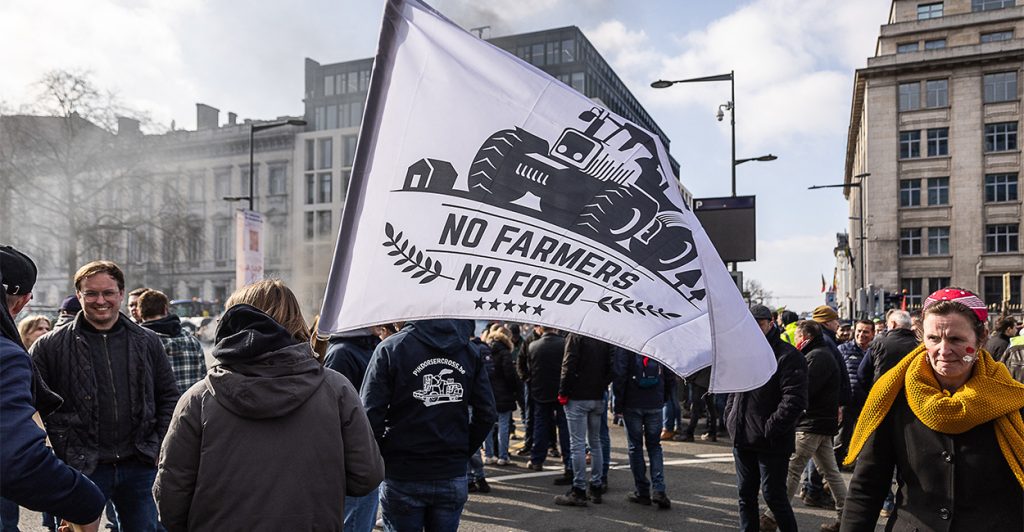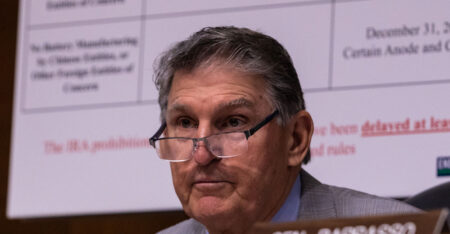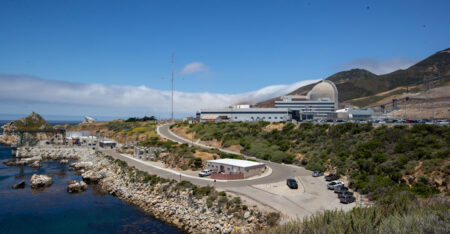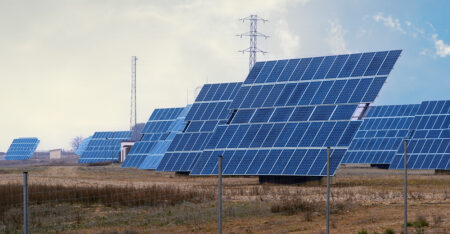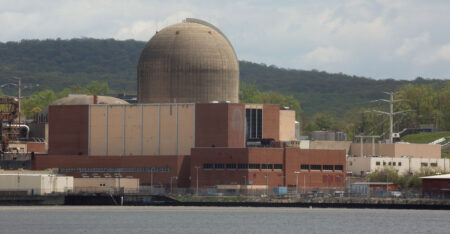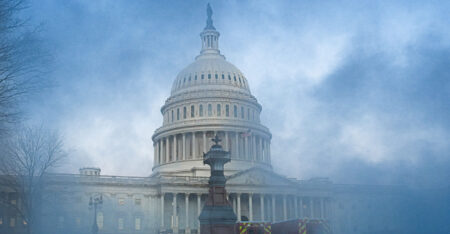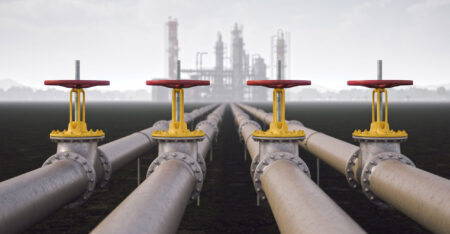Belgian and Dutch farmers are protesting because they are losing their livelihoods in the name of fighting so-called climate change as European governments seek to reduce emissions of nitrogen oxide and ammonia, necessary inputs of modern agriculture. Will American farmers and consumers soon face the same fate?
European farmers are being told that because of the aim for “net-zero emissions” of greenhouse gases and other so-called pollutants in 2050, their industry is being phased out if they can’t adapt.
The U.S. Congress will pass a farm bill this year, and with the Inflation Reduction Act funneling $20 billion of climate funds into agriculture, American farmers could face similar pressures.
Food prices rose 10% over just the past year in the U.S., and climate restrictions will only send prices higher. Egg prices were up 70%, breakfast sausage 10%, breakfast cereal and bakery products 15%, chicken 10%, and lettuce 17%.
When Russia cut off natural gas to Europe, helping to send the globe into near-recession conditions, the world learned the importance of energy security. Agricultural and food security is equally important.
Research institute Rhodium Group is forecasting that agricultural emissions will make up 30% of U.S. total greenhouse gas emissions by 2050.
But fossil fuels are vital to fertilizers and pesticides, which improve crop production and reduce food prices. In 2021, Sri Lanka President Gotabaya Rajapaksa banned synthetic fertilizer and pesticide imports practically overnight, leaving Sri Lanka’s farmers with only organic substitutes, because he claimed that chemical fertilizers and pesticides were leading to “adverse health and environmental impacts.”
Six months later, rice production had dropped by 20% and tea production had declined by 18%. Rice is a staple in the country and tea is a vital export.
In 2022, with inflation at 55% and the economy in tatters, protesters took over Rajapaksa’s home, his government fell, and he had to flee the country.
Not only our energy security, but also our agricultural production and food security, depend on fossil fuels, and we don’t want to destroy that security. Ammonia is a key component of fertilizer manufacturing and producing it requires natural gas.
Europe and America don’t want to end up like Sri Lanka. But groups such as the Swiss-based Center for International Environmental Law are pressuring international development organizations, private corporations, and pension funds not to invest in conventional fuels, even for food.
The center’s October report, titled “Fossils, Fertilizers, and False Solutions: How Laundering Fossil Fuels in Agrochemicals Puts the Climate and the Planet at Risk,” states, “Agriculture accounts for roughly a third of global greenhouse gas (GHG) emissions, and fossil fertilizers—synthetic fertilizers derived from fossil fuels—are an unrecognized contributor to this figure.”
By following the environmental, social, and governance movement and encouraging others to do the same, countries are giving up agricultural productivity and raising food prices. This disproportionately hurts the poor, who spend a higher share of their income on food. Food access for poor people is at stake.
Despite billions of dollars spent by international aid organizations, many people lack food, modern energy, electricity, and running water. One-third of the Earth’s population needs energy from fossil fuels, such as oil, natural gas, and coal, or nuclear power, to bring people up to Western standards.
Countries will never reach Western income levels using only wind and solar—sources of energy dictated by U.S. “climate envoys” John Kerry and Amos Hochstein and other Western politicians. The misguided policies of Western countries to discourage energy use condemn billions of people around the world to impoverished lives and hunger. This poverty is merely collateral damage for the consciences of Western elites.
Reliable energy availability creates cheap food, jobs, and more productive economic growth. This contributes to lower greenhouse gas emissions in the long run.
If the world gives up its energy and agricultural security, countries will be left with the insecurity of higher food and transportation costs, higher electricity costs, and lost jobs, with decreased food access.
Have an opinion about this article? To sound off, please email letters@DailySignal.com, and we’ll consider publishing your edited remarks in our regular “We Hear You” feature. Remember to include the URL or headline of the article plus your name and town and/or state.
Read the full article here





